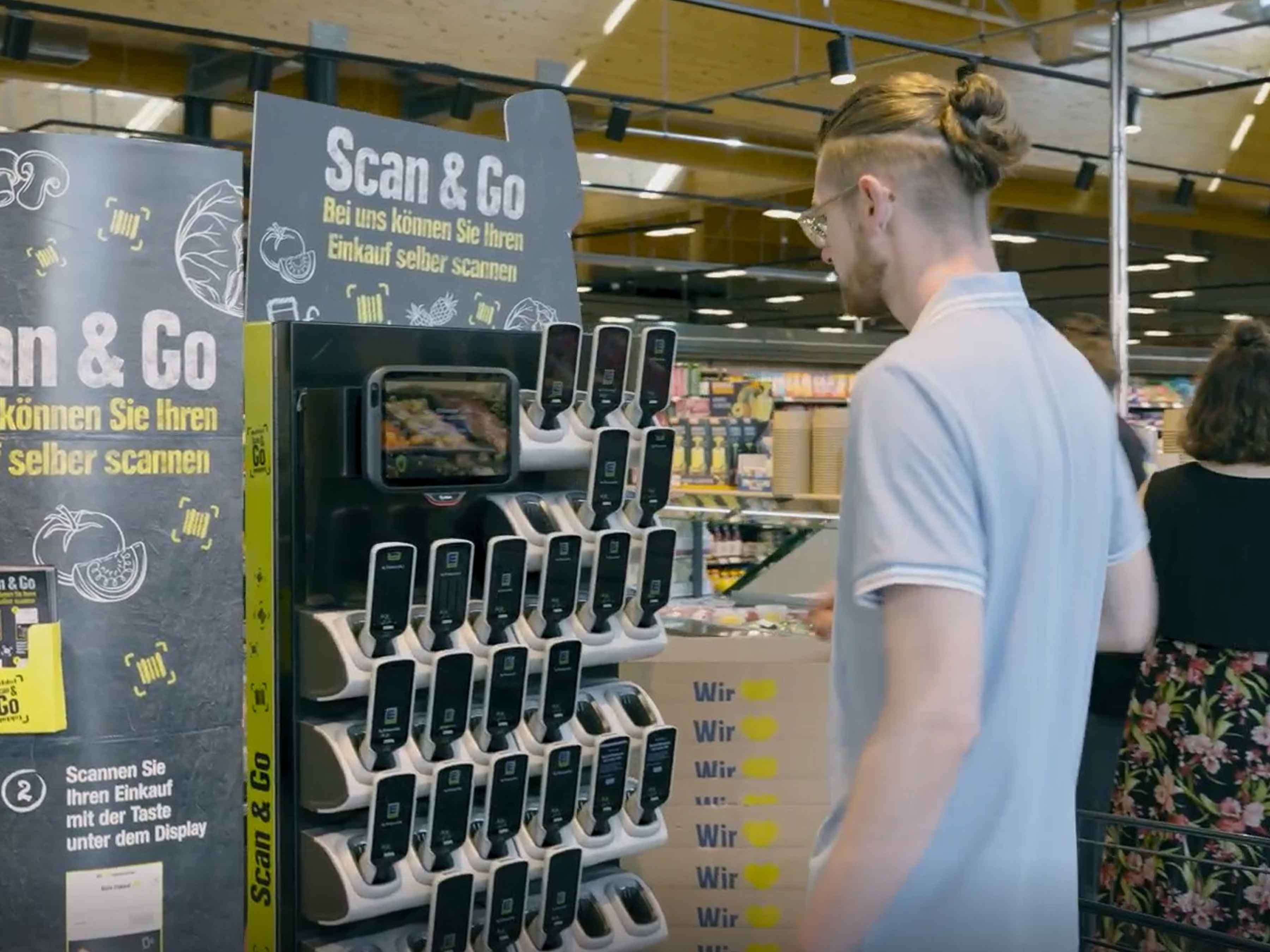
Walgreens Boosts Efficiency and Sales with Zebra's Workcloud Actionable Intelligence
Walgreens is a Chicago-based pharmacy retail chain, that became global in 2014 after merging with Alliance Boots. As America's second-largest pharmacy with over 9,000 locations, the company continuously seeks innovative ways to enhance the customer experience.
Zebra Success Story: Walgreens
Overview: Retail Challenge
As an essential retailer, Walgreens needed an analytics solution more powerful than its existing report-based solution to help it uncover and resolve areas of loss.
Benefits / Outcomes
- Millions of dollars saved thanks to improved visibility and accountability
- Reduced waste rate of 27%
- Hundreds of thousands of dollars of missed credit opportunities flagged
Customer
Walgreens
Deerfield, Illinois/USA
Industry
Retail
Solutions
About Walgreens
Walgreen Company (doing business as Walgreens) is a Chicagobased chain of pharmacy retail stores. It became a global chain in 2014 upon merging with Swiss/British Alliance Boots to form Walgreens Boots Alliance holding company. With more than 9,000 locations across all 50 states, Walgreens is America’s second-largest pharmacy chain. Given Walgreens’ critical importance as a retailer of health products and prescription medications, its asset protection (AP) team is constantly looking for new, innovative ways to offer customers an optimal experience.
Given Walgreens’ critical importance as a retailer of health products and prescription medications, its asset protection (AP) team is constantly looking for new, innovative ways to offer customers an optimal experience.
The Challenge
Walgreens’ AP department had long been the keeper of much of their organization’s data, storing it until it could be analyzed. Traditionally, a report-based analytics solution dispensed raw data in thick paper reports. Each report was either processed by someone on the AP team, or pushed to stores for associates to read and interpret.
This process was highly inefficient for several reasons. First, the paper reports could range from a dozen to several dozen pages long. A non-data-oriented associate might need several days to find anything useful in a given report. By that time, the losses stemming from an issue could have increased exponentially. In addition, the reports could be easily biased or misinterpreted. It was not uncommon for a store manager to dismiss a key insight, not recognizing what they had found, or a store manager finding an insight but taking the wrong action in response.
Walgreens AP launched a search to find a new analytics solution, one that could describe in simple terms exactly what happened and what to do about it.
The Solution
Walgreens AP’s search led them to Workcloud Actionable Intelligence (formerly Zebra Prescriptive Analytics) in 2017. They were intrigued by its intuitive operation, timely analysis (alerting to issues in real time) and actionability (telling associates both what is happening and what action they should take next).
Walgreens initially deployed Workcloud Actionable Intelligence on a relatively small scale as a strictly AP tool. Opportunities for improvement, mostly fraud and other malicious losses, went out to field AP teams and District AP Managers for investigations and follow-ups.
Walgreens’ opportunities in its first few years totaled millions of dollars in value, prompting its AP team to begin scaling up it’s use of the solution. From 2018 into 2019, Walgreens AP began leveraging Workcloud Actionable Intelligence to monitor compliance with various policies and procedures, ranging from transactional restrictions to inventory rotations.
Further successes came following Walgreens’ adoption of the Workcloud Actionable Intelligence Inventory module. This empowered both AP and, for the first time, the store operations team, to identify and address product-related issues like shelf gaps, “phantom inventory” (inventory wrongly listed as available), excessive waste and more.
With this new empowerment of its associates, Walgreens began the process of rolling out the solution to all of its stores. There are now more than 20,000 Workcloud Actionable Intelligence users at Walgreens, from AP and Store Operations to Pharmacy Managers and Inventory Specialists
The Zebra Difference: Outcome and Benefits
The power of Workcloud Actionable Intelligence has resulted in millions of dollars returned to Walgreens’ bottom line. Here are some of the ways the company is using the solution to identify and resolve areas of waste, inefficiency and other concerns:
High Waste Rates
While a certain amount of waste is inevitable in retail, Walgreens wanted to better monitor waste rates. The visibility would help them keep shrink rates to a minimum while ensuring compliance with all associated policies. Thus, they worked with the Zebra Customer Success team and deployed an algorithm that analyzed each store’s waste-to-sales ratio. Anytime the ratio was found to be excessive, the relevant store managers were alerted and directed to audit compliance with proper markdown policy, which is essential to keeping waste rates in check. Ultimately this algorithm uncovered many cases of markdown non-compliance, all of which were addressed, resulting in a reduced waste rate of 27%.
Sales of Alcohol and Tobacco to Minors
Walgreens used Workcloud Actionable Intelligence to combat the known problem of cashiers selling alcohol and tobacco to minor customers. 3 zebra technologies
The Zebra Customer Success team helped Walgreens create an algorithm that flagged repetitive birthdays entered during the ID check stage of controlledsubstance sales. “Essentially this alert pinpoints the cashiers whenever they are repeating birthdays over and over again,” said Tim Bailey, Senior Manager, Asset Protection Solutions for Walgreens. “It’s unlikely multiple customers are coming in with the same birthdays. We’re able to pick up on the pattern that [cashiers] are not correctly checking IDs for alcohol and tobacco.”
Walgreens AP identified over 500 cashiers meeting this criteria within 24 hours of deployment, and quickly intervened with corrective actions. The algorithm has been left active, continuing to help Walgreens identify and address delinquent team members.
Shipped Not Sold
Walgreens also deployed an algorithm monitoring shipped not sold items. Shipped not sold refers to items that were marked as shipped to a given store, but for some reason are not selling. A number of reasons could be at play for this happening, such as a delivery error, theft, a delay between delivery and stocking the shelf or misplacement of product. Alternatively, a shipped not sold alert might not be indicative of a mistake or process failure–there may have simply been no demand for the item in question and further orders should be canceled.
Regardless of the root cause, any item fitting the criteria for shipped not sold must be investigated immediately. This algorithm helps Walgreens identify and address millions of dollars’ worth of non-selling items per year from a variety of causes.
COVID-19 Compliance
At the onset of the COVID-19 pandemic, Walgreens worked with Zebra’s Customer Success team to develop new ways of verifying employee compliance with safety and sanitation protocols. The Sales module proved invaluable for this purpose. One successful approach involved analyzing cashiers’ time between orders and comparing them to pre-pandemic benchmarks. Any cashier whose performance levels were actually higher than pre-pandemic was flagged for a compliance check by AP or store operations.
The reasoning behind this logic was that new policies such as cleaning registers between customers and asking customers to stand six feet apart were expected to decrease cashier productivity. If the cashier was meeting or exceeding prepandemic productivity levels, he or she likely was not complying with these policies. Numerous associates were flagged and confirmed to be non-compliant. Corrective actions were taken as appropriate.
Other uses of the Sales module around COVID-19 compliance included identifying theft of in-demand products like toilet paper or sanitizer and enforcing purchase-quantity restrictions.
Missed Credit Opportunities
Per Walgreens’ contract with its publications supplier, any unsold paperback books at Walgreens stores may be returned for credit. This must be done by a Walgreens associate and is a rather complex process, as they must constantly juggle multiple time windows and reports to determine which publications are eligible for credit, and which are not.
Because Walgreens purchases so many books, the amount of credit on the line can be worth hundreds of thousands of dollars. Thus, Walgreens requested a pattern that could identify stores that were not processing the publications for credit. The Zebra Customer Success team developed one that issues an alert when a store has not received any credit for 60 days.
The pattern has been wildly successful, with hundreds of thousands of dollars in missed credit opportunities flagged every year. Retraining and other appropriate countermeasures are underway to ensure Walgreens can get its money back where due.
Negative Time Gaps for Open and Close
When stores do not open or close on time (whether early or late), the consequences can be far more dire than just lost revenue–especially for retailers like Walgreens.
This is because Walgreens carries many products essential to human health. The nature of this inventory makes it beyond critical that stores are open when their customers need them to be.
Walgreens has two Workcloud Actionable Intelligence algorithms deployed that flag when stores open or close outside of posted operating hours. They have caught numerous cases since deployment, including the following:
- Payroll fraud. A shift leader opened her store an hour early, clocked in, left, and then returned at the posted opening time. Every time she did this, she earned $10 in undue wages. She paid full restitution.
- Illegal closing. A night associate closed his store 40 minutes early so he would not be late to a family party. The algorithm calculated that those 40 minutes had cost the store $450 in missed sales. Disciplinary action was taken.
- Labor-law violations. An assistant manager closed her store on time at 10 p.m., only to reopen it at 2 a.m. and re-close it at 6 a.m. CCTV footage showed her setting up holiday displays with her niece, who was not a Walgreens employee. Disciplinary action was taken due to the assistant manager having allowed a non-employee to work without pay and herself working off-hours without permission.
This pair of algorithms continues to flag many thousands of dollars in potential lost revenue and/or undue wages due to illegal store opening and closing times.
Into the Future
Walgreens continues to leverage Zebra to identify shrink, increase revenue, minimize risk, empower employees and optimize the customer experience well into the future.




